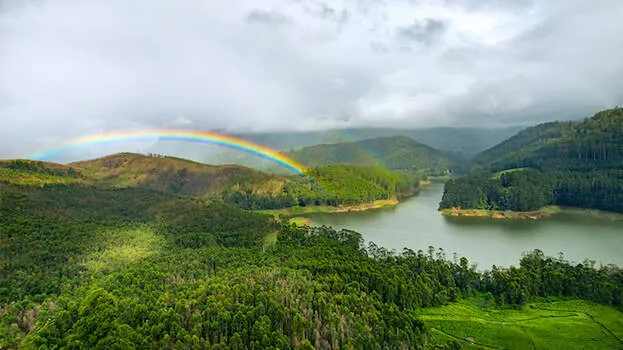

Land availability is the biggest hurdle for any development project in Kerala. The main response from the Centre when Kerala submits proposals, including railway projects, is 'First acquire the land and then come to us.' In this context, the state government is preparing to bring a bill in the upcoming Assembly session to acquire 1,200 acres of land in Munnar, Idukki, by cancelling lease arrangements, in order to set up an international-standard tourism hub. The report on this plan, prepared by Kerala Kaumudi journalist Sreekumar Pallileth, was released yesterday. The land to be taken over currently belongs to Kanan Devan Hills Plantations Company under the Tata Group.
The government’s proposed tourism hub in Munnar, Kerala’s busiest hill destination, is expected not only to transform the face of tourism development in the state but also to place the 'Kerala brand' firmly in the global tourism market. In 1971, the ownership of all Kanan Devan land was vested with the government, which later handed it out on lease. Now, 1,200 acres, including areas with shops, institutions, and public spaces in Munnar town, will come under full state ownership once the bill becomes law. Considering that Idukki has the highest number of land encroachment issues and related cases, this legislative move to regain land can be described as revolutionary.
Tourism is one of the fastest-growing “industries” in the world. However, Kerala has not yet fully treated tourism as an industry in its true sense. As a result, hotels, restaurants, accommodation, and leisure facilities- almost everything that can be brought under the tourism industry- have been dominated by the private sector. The government owns only a few hotels or facilities. What makes the proposed tourism hub different is that it will be developed under government leadership but will also welcome investments from international tourism companies. This government–private partnership approach is timely and necessary and deserves full support.
Tourism Minister P.A. Mohammed Riyas and his department have already shown creativity and commitment in introducing innovative ideas in Kerala’s tourism sector and successfully implementing them. The same expertise and determination are expected in the Munnar tourism hub project as well. In modern development thinking and economics, “everything under government control” is no longer practical. Instead, the government should act as a facilitator, attracting maximum private investment, providing concessions, and ensuring proper regulation and infrastructure. If implemented successfully, the Munnar tourism hub can create thousands of new jobs in the tourism sector and beyond. Ultimately, the Munnar Tourism Hub should grow to become Kerala’s total development hub.